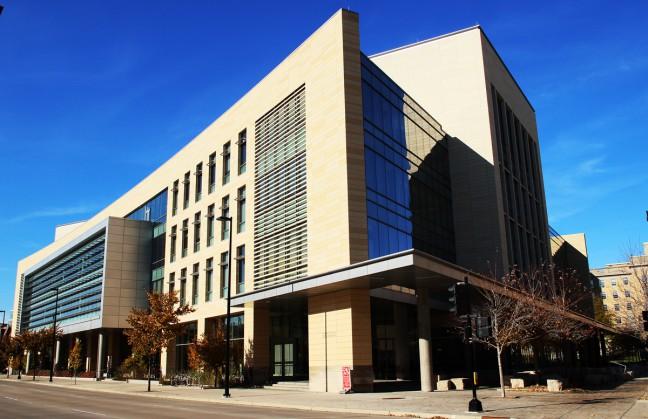A new program at the Wisconsin Institute for Discovery is giving undergraduate students at the University of Wisconsin the opportunity to design projects based on their own ideas for scientific research or artistic endeavors.
The Frontier Fellows Program, a part of the Wisconsin Institute for Discovery, encourages students from various academic disciplines to apply for projects of their choosing with the guidance of expert faculty. David Baum, who served as chair of the selection committee for the program, said the program is the result of an effort to get more students, undergraduates in particular, involved with the work at the institute and participating with faculty.
“I personally believe that the best ideas out there are going to be coming from people in their twenties,” Baum said. “The goal from WID’s point of view is to find talented students and get them integrated within the WID community. While we encourage students to have ideas, we’re more interested in the people than the project.”
Frontier Fellows Program member Ana Beckman said the program is currently comprised of nine students who work in smaller teams for their respective projects. Beckman said the most interesting aspect of the program is the various backgrounds represented by the students who work together.
Beckman, along with UW students Alexandra Cohn and Michael Zaiken, is currently working on the “Biobulb” project. The majors of the students involved in the project range from neurobiology and anthropology to philosophy and biochemistry, Beckman said. The interdisciplinary team is working to develop what an artistic representation of synthetic biology, she said.
“[The Biobulb] is made up of three different living organisms,” Beckman said. “Essentially, in the end it would look like a blue, glowing light bulb about as bright as an exit sign.”
Beckman said she feels the program has provided her with a good way to discover where her interests lie. She said her biggest gain from her work thus far has been learning to express her ideas to other people that may not typically understand the complex science behind the project.
“As a student, I am learning how to communicate and express my ideas in different ways so that everyone can understand them,” Beckman said. “People are of many different disciplines but they all want to understand.”
According to Beckman, the Biobulb is ultimately intended to generate appeal from the public as an educational tool which can help people learn about synthetic biology.
Baum said he believes the program carries great potential to the university and its community. Each member of the Frontier Fellows program serves as an ambassador of their work and the WID community as a whole, he said.
“In addition to bringing into WID their expertise, they share it with everybody they interact with throughout campus,” Baum said. “We hope that it’s a two way street.”





















